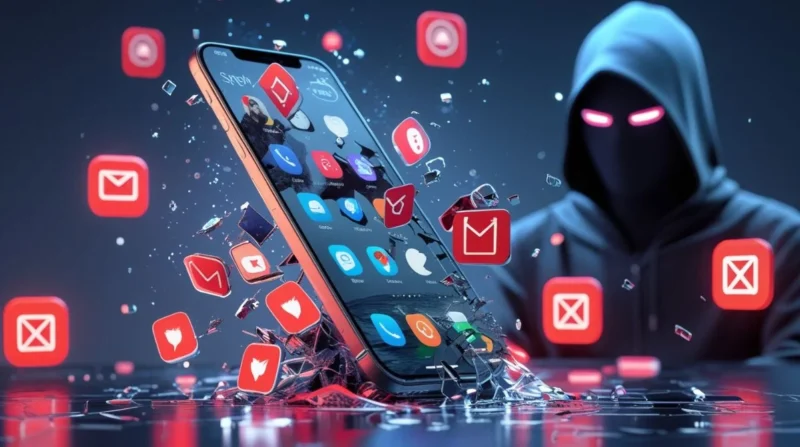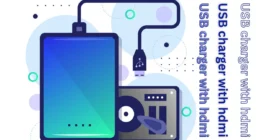Table of Contents
In 2025, the digital privacy world was shaken by a major incident involving the Spyzie spyware app data leak. This app, like many others in the same category, was designed to track phone activity quietly. While it’s advertised for parental control or employee monitoring, the recent breach has exposed deep flaws in how these apps manage private data.
If you’ve heard of Spyzie but aren’t sure what went wrong or how it affects you, this guide breaks everything down in plain words.
What Is Spyzie and How Does It Work?
Spyzie is a mobile tracking app often installed on smartphones to monitor calls, text messages, photos, locations, and even social media usage. It runs in the background without being visible to the person using the phone. Many people use such apps to keep an eye on kids or employees.
However, most people don’t realize that these apps collect huge amounts of personal information and store it in cloud servers, which can be hacked, misconfigured, or left open accidentally.
How Safe Is Spyzie for You and Your Data?
In short, Spyzie is not safe, either for the person being tracked or the person doing the tracking. Most spyware apps like Spyzie do not have strong data protection practices. Here are some major concerns:
- Weak data security: Many apps store data without proper encryption.
- Hidden installation: Since it operates secretly, it can be used for spying without consent.
- Lack of updates: Developers often don’t fix bugs or respond to security threats quickly.
- Legal gray area: In many countries, using spyware without permission is illegal.
If you use Spyzie, your email, login credentials, and more can be exposed. If you are being tracked, your private messages, locations, and photos can leak.
What Happened in the 2025 Spyzie Data Leak?
In early 2025, cybersecurity researchers revealed a massive data breach involving Spyzie, as well as related apps like Cocospy and Spyic. Here’s what happened:
- 518,643 customer email addresses were exposed.
- Data from over 500,000 Android devices and 4,900 iPhones was leaked.
- Information included photos, texts, calls, and GPS locations of monitored users.
- Researchers found open cloud servers used by these apps without passwords or basic protections.
What made things worse is that the company behind these apps took their websites offline after the exposure. This suggests they were aware of the danger but chose to hide rather than fix the issue. Security blogs and watchdogs like TechCrunch and Malwarebytes covered this news in detail.
A Wake-Up Call for Parents and Employers
Many parents and employers use tools like Spyzie, thinking they are doing the right thing, keeping kids safe or tracking productivity. But the 2025 breach tells a different story:
- Data once collected can’t be taken back: Once a message or image is leaked, it may spread quickly.
- You’re putting others at risk: Even if your intentions are good, you are exposing another person’s privacy.
- You’re also exposing yourself: As a user of such an app, your email, passwords, and even payment data can be part of the leak.
Instead of using secret surveillance tools, consider transparent solutions where the monitored person knows they’re being tracked, like trusted parental control apps (e.g., Google Family Link or Apple Screen Time).
2025 Update: Is Spyzie Still Working?
As of mid-2025, Spyzie’s website is no longer online, and its services appear to have shut down after the breach was exposed. That doesn’t mean similar threats are gone. There are many apps that offer the same spying features and carry the same risks.
No public update or apology has been made by the Spyzie team. That lack of transparency makes it clear: they are unlikely to fix their security problems anytime soon.
If you still have Spyzie or a related app installed on your phone (like Cocospy or Spyic), uninstall it immediately and change your passwords. Run a security scan or consult a tech expert.
What can you do now?
Whether you were affected by the leak or just want to be safe, here are some quick actions:
- Check your device for hidden apps you didn’t install.
- Install trusted antivirus software like Avast, Norton, or Bitdefender.
- Use 2-factor authentication on all your accounts.
- Report any suspicious apps to your mobile provider.
- Talk to your kids or team members openly instead of using hidden tracking tools.
Think Before You Track
The Spyzie spyware app data leak wasn’t just a one-time failure, it’s a warning. Spyware apps can do more harm than good, even if you’re using them for a good reason. They often work in legal grey areas, collect massive amounts of sensitive data, and leave both users and targets exposed to hackers, leaks, and embarrassment.









